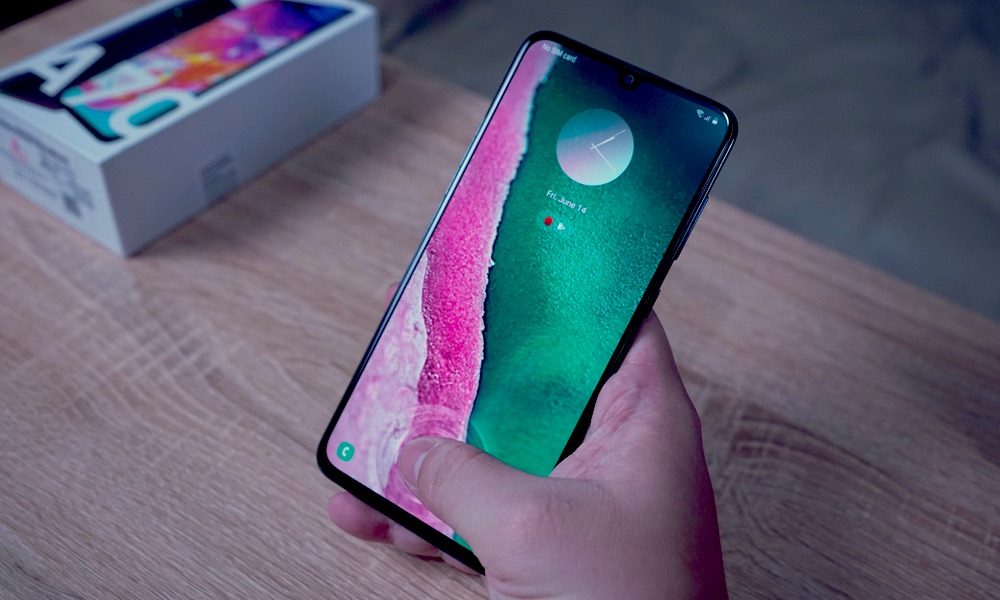Apple’s ‘Crazy’ Repair Rules Are Nothing Compared to Samsung’s
 Credit: TK Kurikawa / Shutterstock
Credit: TK Kurikawa / Shutterstock
Toggle Dark Mode
Five years ago, Apple launched an Independent Repair Provider (IRP) program that would allow smaller repair shops to access genuine Apple parts and repair resources without the need to become a fully Apple Authorized Service Provider (AASP).
Signing up for Apple’s AASP program isn’t for the faint of heart. It requires an established business history, submission of audited financial records and a credit line with Apple Finance, and business premises that have a layout “consistent with the Apple brand,” just to name a few things.
By comparison, the IRP program only requires companies to have a business identity with a commercial location (as opposed to a residential address) and ensure its repair technicians have been trained by Apple to perform the necessary repairs. Once admitted, IRPs get access to all the necessary Apple parts and tools at the same cost as AASPs.
Despite this lower barrier to entry, the IRP program still has some pretty stringent terms and conditions that lawyers have called “crazy” and “onerous,” including the requirement to comply with “unannounced audits and inspections by Apple” to “search for and identify the use of ‘prohibited’ repair parts.” Shops found using non-genuine parts can be fined by Apple, and the contract allows Apple to “continue inspecting repair shops for up to five years” even after the company withdraws from the IRP program (or gets kicked out).
However, if you think those terms sound bad, they’re nothing compared to what Samsung requires its repair providers to do when dealing with devices that are found with unauthorized parts.
Snitch and Destroy
The folks at 404 Media recently got their hands on the agreement that Samsung makes independent repair shops sign, and to say that it’s draconian in its terms and conditions would be an understatement.
Specifically, Samsung requires its repair shops to destroy any devices that are found using unauthorized repair parts and report their owners to Samsung.
While the language in the contract uses the word “disassemble” rather than “destroy,” the result is the same. Here’s the relevant text of the agreement, as shared by 404 Media:
Company shall immediately disassemble all products that are created or assembled out of, comprised of, or that contain any Service Parts not purchased from Samsung […] and shall immediately notify Samsung in writing of the details and circumstances of any unauthorized use or misappropriation of any Service Part for any purpose other than pursuant to this Agreement.
Samsung repair shops are also required to submit details of all repairs into a Samsung database called G-SPN as soon as each repair is done. This includes the customer’s mailing address, email address, phone number, details on the customer’s complaint and their phone’s actual problem, plus warranty status and the device’s IMEI number.
The use of aftermarket parts in repair is relatively common. This provision requires independent repair shops to destroy the devices of their own customers, and then to snitch on them to Samsung. Jason Koebler, 404 Media
That’s a stark contrast to Apple, which only seems to care about its repair providers using unauthorized parts. Even an Apple Store will be happy to do its best to fix your iPhone regardless of what it finds inside — as long as you’re willing to pay for it, of course. Apple technicians may encourage you to replace any non-genuine parts, but they won’t force the issue unless the part in question is the cause of whatever problem you’re having. However, you’re always welcome to decline any repairs and walk away with your unmolested device in hand.
By contrast, if a Samsung repair shop finds any unauthorized parts in your phone, it’s required to disassemble it and report the incident to Samsung. There’s no word on whether it can return the resultant parts of the disassembled phone to the customer.
It’s unlikely many Samsung repair shops are following these rules, and it’s unclear how rigidly Samsung enforces them. Nadeem Sarwar at Digital Trends reached out to some repair shops in India, which told him that they won’t destroy phones if they find an aftermarket part inside, although at least one will send any removed parts back to Samsung unless the customer submits a written request to keep the replaced part.
However, even if the contract terms aren’t enforced, it’s troubling that they exist in the first place. John Bergmayer, legal director of the consumer rights group Public Knowledge, told 404 Media that Samsung would presumably “try to defend the provision about ‘Service Parts not purchased from Samsung’ requiring a phone to be destroyed as a measure to fight counterfeits,” but the language goes beyond that significantly, and would undoubtedly run afoul of the US Magnuson Moss Warranty Act, which gives customers a right to use third-party parts. “It’s hard to square this contact language with that basic consumer right,” Bergmayer adds.
Leaving aside the requirement to destroy phones with unauthorized parts, there are also privacy issues of Samsung requiring repair shops to disclose personal information and details about every customer who comes in for a repair. While you obviously provide your personal information to Apple when you visit an Apple Store directly, nothing in the terms of Apple’s AASP or IRP contracts require third-party providers to offer up anything more than the serial number of the device being repaired.









